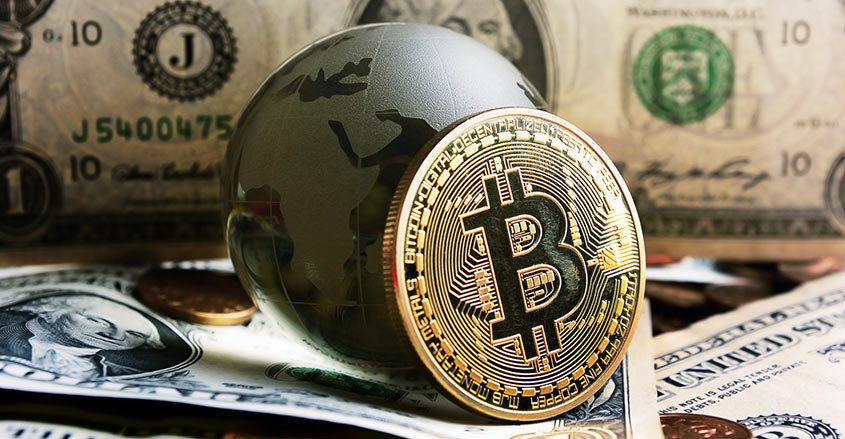Economists at the Federal Reserve Bank of New York believe that Bitcoin could be the future of transactional currency.
But only in a dystopian world where the public trust in government-backed currencies has been completely shattered.
Michael Lee and Antoine Martin work in the research and statistics group section of the New York Fed.
The two economists answered questions about the future viability of cryptocurrencies on an official blog maintained by the New York Fed called “Liberty Street Economics.”
Specifically, the two economists answered topics and posted commentary on the question “Are cryptocurrencies the future of money?”
The economists think that the public should sustain their trust in fiat money.
“If we lived in a dystopian world without trust, Bitcoin might dominate existing payment methods.
“But in this world, where people do tend to trust financial institutions to handle payments and central banks to maintain the value of money it seems unlikely that Bitcoin could ever be as convenient as existing payment means.
“Cryptocurrencies arguably solve the problem of making payments in a trustless environment. But it is not obvious that this is a problem that needs solving, at least in the United States and other advanced economies.”
Lee touched on the criticism that Bitcoin and other cryptocurrencies can’t be trusted because they are created anonymously online via blockchain mining and are not backed by valuable commodities, such as gold.
If there was sufficient public trust in cryptocurrencies as actual currency, then their market valuation would not be so dizzyingly volatile and unpredictable, Lee wrote.
Lee also pointed out that fiat currencies, also not backed by commodities, have value because the public trusts the governments and financial regulatory bodies that issue them.
“It’s trust that the ‘worthless’ piece of paper is actually worth something to other people that makes it an acceptable medium of exchange.
“As a result, the price of Bitcoin fluctuates with news that vendors or firms accept or decline Bitcoin as a mode of payment,” Lee wrote.
Toy collectors
If anyone has explicit trust in cryptocurrencies, Lee suspects that it may be criminals and money launderers, since cryptocurrency transactions sidestep financial regulatory rules.
Lee cited a Drug Enforcement Administration report issued in 2016 marking a striking decrease in the smuggling of bulk paper currencies, which may partly be attributed to the convenience of cryptocurrency hoarding.
Another economist, Neel Kashkari, president of the Federal Reserve Bank of Minneapolis, recently made comments that coincide with Lee and Michael’s critique of cryptocurrencies.
“If you live in any modern advanced economy, I would stick with the dollar, I would stick with the yen and leave Bitcoin for the, you know, toy collectors.
“The idea that these virtual currencies are ever going to compete with the dollar is hard to fathom,” he said.


